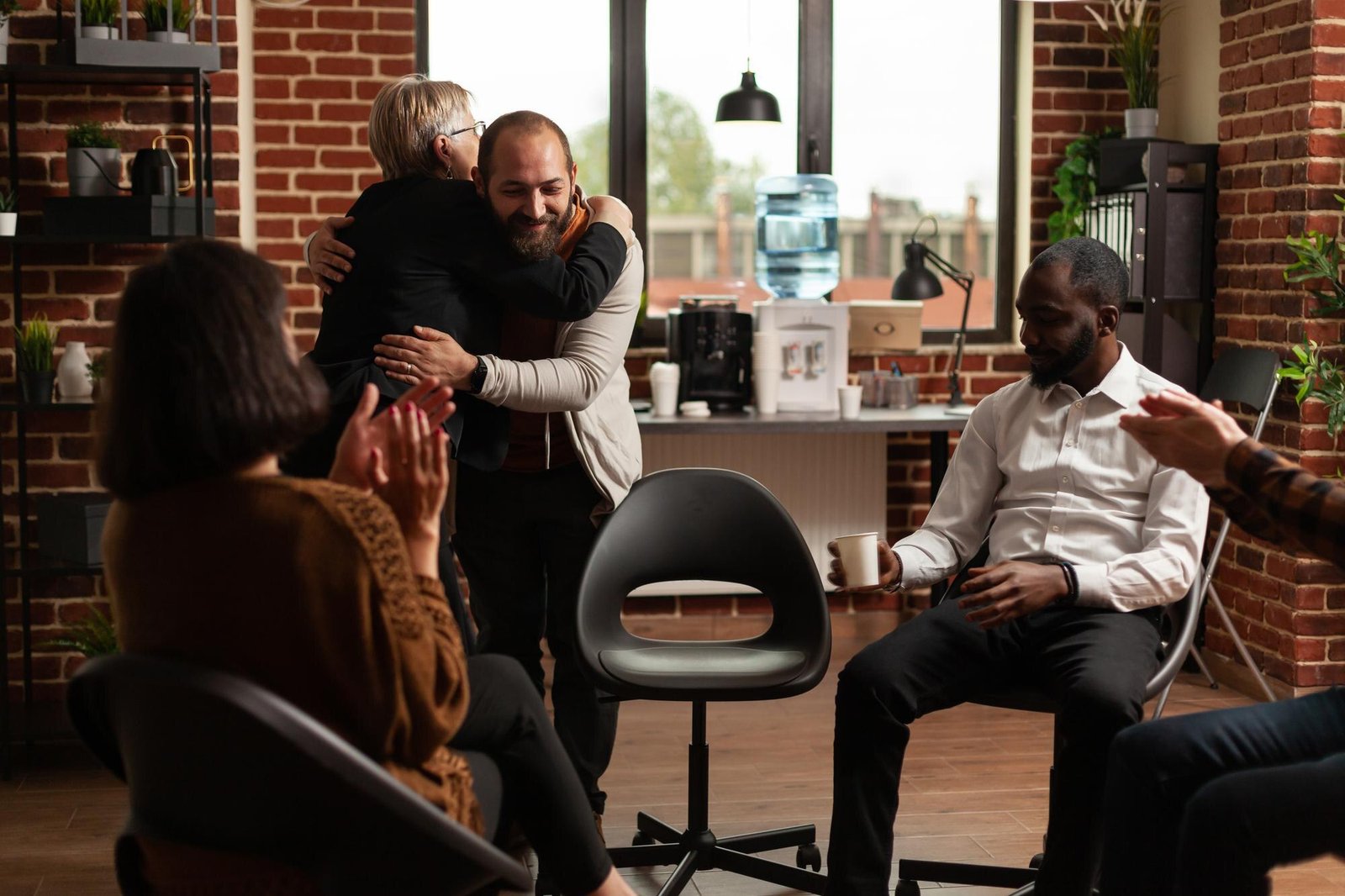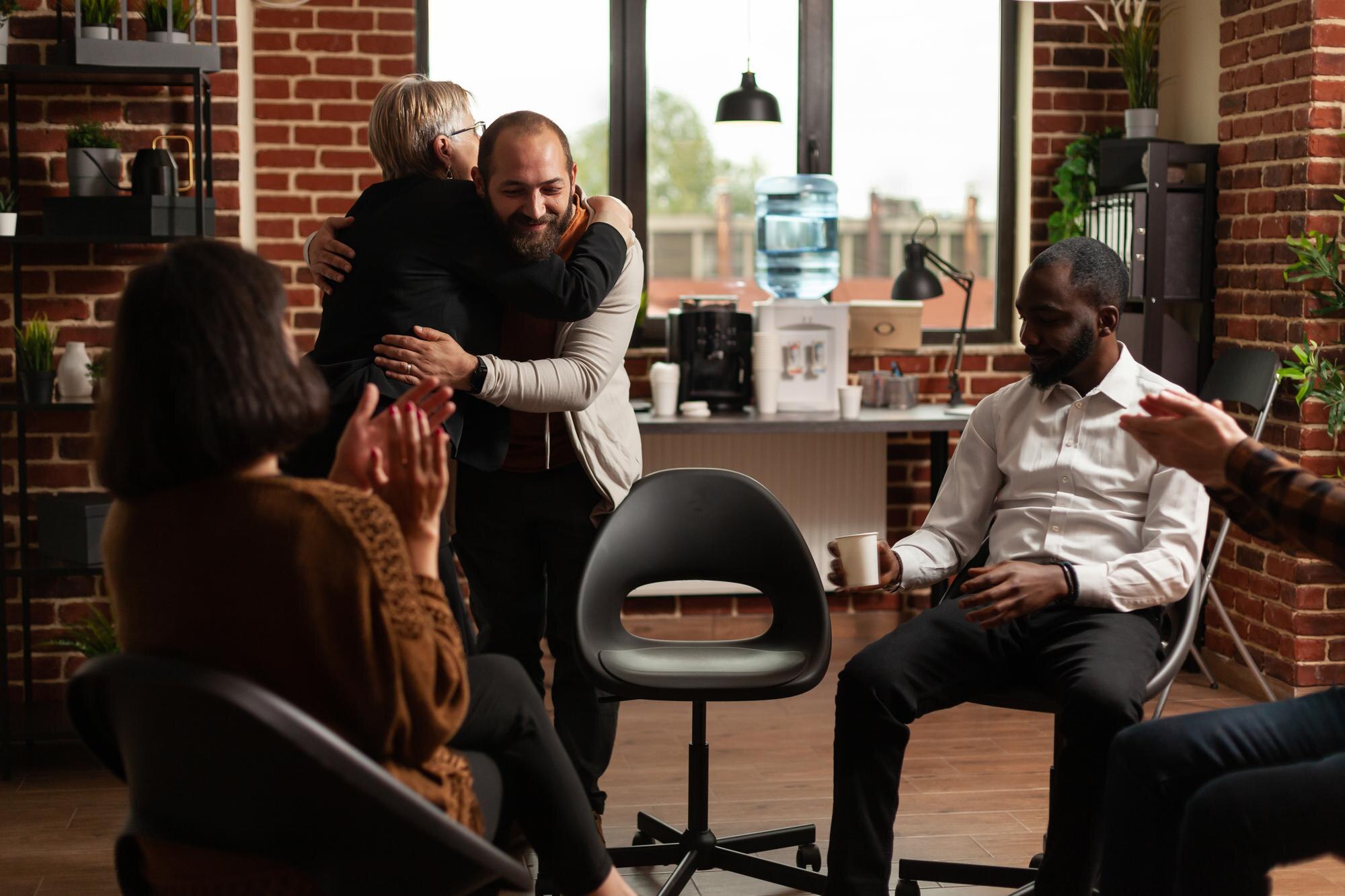
Why Non-Clinical Coaching Could Be Your Key to Overcoming Addiction
Forget everything you know about addiction recovery. Traditional therapy isn’t the only path to healing. Non-clinical coaching offers a powerful alternative that focuses on emotional healing without labels. If you’re tired of feeling alone in your struggle with compulsive behaviors, this approach could be the change you need. Imagine breaking free from the cycle of self-doubt and emotional pain in a safe, supportive space. Discover how non-clinical coaching can transform your journey to freedom. Explore this empowering path today. Learn more about the differences between recovery coaching and therapy here.
The Power of Non-Clinical Coaching

Non-clinical coaching offers a unique approach to addressing addiction and compulsive behaviors. It’s a method that emphasizes personal empowerment and emotional healing without the traditional labels and diagnoses often found in clinical settings. This section explores how non-clinical coaching can help individuals find freedom from their compulsions and heal emotionally.
Breaking Free from Compulsions
Breaking free from compulsive behaviors involves understanding the emotional roots that drive them. Non-clinical coaching provides a pathway to explore these emotions in a supportive environment. This approach encourages individuals to reflect on their behaviors and identify the unmet needs behind them.
For example, many people use food or substances to numb emotional pain. By working with a coach, individuals can learn to recognize these patterns and develop healthier coping mechanisms. This process can be transformative, as it empowers people to take control of their actions and choices.
In a non-clinical setting, the emphasis is on personal growth rather than diagnostic labels. This shift in focus allows for a more holistic understanding of one’s behaviors and the motivations behind them. By addressing the emotional underpinnings, individuals can begin to heal and move towards a life free from compulsions. For more insights on this approach, visit Framework Recovery.
Emotional Healing Without Labels
Emotional healing is a critical component of overcoming addiction. Non-clinical coaching focuses on healing without the stigma of labels. This approach allows individuals to explore their emotions freely, fostering a sense of safety and acceptance.
In traditional therapy settings, individuals may feel defined by their diagnoses. Coaching, on the other hand, encourages a broader exploration of one’s emotional landscape without the constraints of clinical categories. This freedom can be liberating and empowering.
For instance, a person struggling with substance reliance can work through feelings of shame or guilt in a non-judgmental space. Through guided reflection and supportive dialogue, they can build self-compassion and resilience.
Ultimately, emotional healing in non-clinical coaching involves creating a new narrative of self-acceptance and empowerment. This process is about reclaiming one’s story and moving towards a healthier, more fulfilling life. Learn more about how coaching compares with traditional therapy at Michael Walsh’s blog.
How Coaching Transforms Addiction Recovery

The journey of addiction recovery can be profoundly impacted by non-clinical coaching. This approach offers a safe and empowering space for individuals to explore their challenges and develop the tools necessary for lasting change. Here’s how coaching can transform the recovery process.
A Safe Space for Change
Creating a safe space is crucial for effective recovery. Non-clinical coaching fosters an environment where individuals feel secure to express their thoughts and emotions. This safety is foundational for genuine transformation.
In this space, clients are encouraged to explore their vulnerabilities without fear of judgment. The focus is on understanding and accepting oneself, which can lead to profound insights and personal growth. Coaches utilize compassionate listening and empathetic guidance to facilitate this exploration.
Safety also involves setting boundaries and establishing trust between the coach and the individual. This trust is essential for open communication and effective coaching. By fostering a safe environment, individuals are more likely to engage deeply with the process and experience significant change.
For more on how non-clinical settings offer safety and growth, read this article on PMC.
Empowering Tools for Self-Trust
Building self-trust is integral to overcoming addiction. Coaches provide empowering tools that help individuals reconnect with their inner strength and intuition. These tools are practical, actionable, and tailored to each person’s unique needs.
Mindfulness Practices: Encouraging awareness of thoughts and emotions in the present moment.
Reflective Exercises: Helping clients identify patterns and triggers in their behaviors.
Goal Setting: Establishing clear, achievable objectives to guide the recovery journey.
Through these methods, individuals learn to trust their own judgments and decisions. This self-trust is crucial for building confidence and resilience, which are vital for sustaining recovery.
Ultimately, empowering tools equip individuals with the skills to navigate challenges independently. They foster a sense of agency and accountability, allowing for deeper self-understanding and growth. Explore more about the empowering potential of coaching at Behave Health.
Choosing an Alternative to Therapy

When traditional therapy doesn’t resonate, non-clinical coaching offers a compelling alternative. This section delves into why some individuals find greater success in this approach, focusing on overcoming emotional pain and achieving real change without judgment.
Overcoming Emotional Pain
Addressing emotional pain is a cornerstone of overcoming addiction. Coaching provides a unique approach to this challenge by fostering a non-judgmental space where individuals can process their emotions.
In coaching, the emphasis is on understanding the emotional drivers behind behaviors rather than pathologizing them. This approach allows individuals to explore their feelings without the fear of being labeled or judged. It can be a powerful catalyst for healing and growth.
Through personalized guidance, coaches help individuals identify and address the root causes of their pain. This process often involves exploring past experiences, unmet needs, and unresolved emotions. By gaining insight into these areas, individuals can begin to heal and release their emotional burdens.
Ultimately, overcoming emotional pain in coaching involves transforming one’s relationship with their emotions. It empowers individuals to move forward with greater clarity and emotional resilience. Learn more about choosing the right path for recovery at Michael Walsh’s blog.
Real Change Without Judgment
Real change comes from a place of acceptance and self-compassion. Non-clinical coaching emphasizes change without judgment, creating a supportive space for individuals to grow and evolve.
In this approach, individuals are encouraged to embrace their imperfections and recognize their inherent worth. This acceptance forms the foundation for genuine transformation. Coaches provide guidance and support, helping clients set realistic goals and celebrate their progress.
Bullet Points for Change:
Self-Reflection: Encouraging deep introspection to understand motivations and behaviors.
Accountability: Fostering a sense of responsibility for one’s choices and actions.
Growth Mindset: Emphasizing the potential for change and development.
Without the fear of judgment, individuals feel free to explore new possibilities and make meaningful changes. This freedom can lead to increased motivation and a stronger commitment to the recovery process.
In conclusion, choosing an alternative to traditional therapy can be a powerful step towards lasting recovery. For more information on the benefits of non-clinical coaching, visit Framework Recovery.
🌟✨



